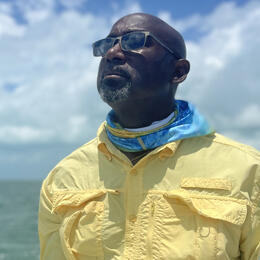The Biscayne Bay and Southeastern Everglades Ecosystem Restoration Project (BBSEER) kicked off in the summer of 2020, led by the U.S. Army Corps of Engineers (Corps) with the South Florida Water Management District as the state partner. The first phase of the project is a feasibility study focused on formulating a plan that will improve the quantity, quality, timing, and distribution of freshwater to Biscayne Bay and Southeastern Everglades, Biscayne National Park, Barnes Sound, Card Sound, and Manatee Bay, by restoring wetland and nearshore estuarine habitats. The project also aims to improve the resiliency of marsh and coastal habitat to sea-level rise and other climate related impact.
Project planning for BBSEER is expected to take three years. In addition to the Corps and the District, a Project Delivery Team (PDT) composed of federal and state agency representatives, local government staff, and tribal representatives will provide input and wide-range of technical and scientific expertise to the planning process. Audubon’s Jerry Lorenz, Ph.D., Everglades Science Center Director, is a member of the PDT, and his extensive expertise gained over decades of monitoring and gathering data in Biscayne and Florida Bays will be an invaluable addition to the PDT and will help ensure the final project plan is driven by sound science.
BBSEER is not the first time the Corps has combined multiple CERP projects in an effort to expedite restoration and/or reduce costs. Expediting restoration is a laudable goal but should not come at the expense of achieving all of the intended ecological benefits authorized by Congress.
Audubon’s science and policy teams will work to ensure the final project does not result in scaled-down benefits for the Southeastern Everglades, Florida Bay, or Biscayne Bay.




